Call for Participation
Intelligent User Interfaces in Healthcare
Tuesday, 25 July 2023 - 13:30-17:30
(Note: Cancelled by the workshop organizers)
Swati Chandna
SRH University Heidelberg, Germany
Swati.Chandna@srh.de
Binh Vu
SRH University Heidelberg, Germany
Binh.Vu@srh.de
Matthias Hemmje
FernUniversität in Hagen, Germany
Matthias.Hemmje@fernuni-hagen.de
Benjamin Zierock
SRH University Heidelberg, Germany
Benjamin.Zierock@srh.de
Marco Xaver Bornschlegl
FernUniversität in Hagen, Germany
Marco-Xaver.Bornschlegl@fernuni-hagen.de
Due to the response to the pandemic, many healthcare units worldwide are moving to virtual care. With such change, many people risk being excluded, like older people, people with low vision or hearing, etc. This workshop aims to discuss different intelligent user interfaces with the main goal of improving human-computer interaction with the help of technologies such as natural language processing, affective computing, and artificial intelligence. Examples include intelligent telemedicine and telehealth. This can also have interfaces like wearables, voice assistants, and chatbots for virtual care. Other examples include dealing with health issues like stress, behavior changes, depression, etc. This workshop aims to provide a forum for AI experts, NLP experts, user interface experts, researchers, and industrial practitioners to discuss and exchange the potentials, applications, and lessons learned from user interfaces, natural language processing, and machine learning. Some of the direct applications include remote communication, interaction, and intervention. The workshop program will be included as part of the HCI International 2023 program.
|
13:30 - 14:00 |
Welcome and Introduction |
|
14:00 - 15:30 |
Session 1 |
|
15:30 - 16:00 |
Coffee Break / Networking |
|
16:00 - 17:00 |
Session 2 |
|
17:00 - 17:30 |
Summary and Discussion |
Submission for the Workshop
Workshop proposals, to be submitted through the HCII Conference Management System (CMS), should include a statement of the objective and significance of the research approach, a description of methods, and a discussion of results:
Submission for the Conference Proceedings
The contributions to be presented in the context of Workshops will not be automatically included in the Conference proceedings.
However, after consultation with the Workshop Organizer, authors of accepted workshop proposals that are registered for the conference, are welcome to submit through the HCII Conference Management System (CMS), an extended version of their workshop contribution, to be considered for presentation at the Conference and inclusion in the “Late Breaking Work” conference proceedings, either in the LNCS as a long paper (typically 12 pages, but no less than 10 and no more than 20 pages), or in the CCIS as a short paper (typically 6 pages, but no less than 4 and no more than 8), following peer review.
The submission deadline for the camera-ready papers (long or short) for the “Late Breaking Work” Volumes of the Proceedings is the 23rd of June 2023.
|
Submission of workshop proposals |
8 May 2023 |
|
Notification about submission acceptance |
22 May 2023 |
|
Finalization of workshop organization and registration of participants |
31 May 2023 |
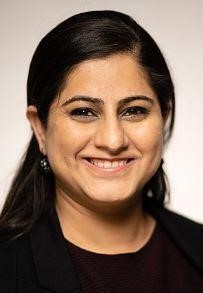
Swati Chandna, SRH University Heidelberg, Germany
Swati Chandna is currently working as a full-time Professor at SRH University Heidelberg, Germany. She is responsible for Data Analytics, Data Visualization and Storytelling, User Experience Design and Implementation, Usability Engineering, and Verification modules for the students. Earlier from January 2018 to March 2020, she was working as a guest professor at SRH University Heidelberg. In parallel, she was also working as a full-time senior data scientist and has worked for various renowned customers in the automobile, health, and airline industry. From 2013 until 2018, she worked as a research scientist at Karlsruhe Institute of Technology, Karlsruhe, Germany in the area of machine learning, deep learning, and data visualization. Her scientific profile includes artificial intelligence, big data analytics, data visualization, machine learning, and data storytelling. She has authored and co-authored more than 20 research papers published in various national and international journals, and conferences. She also serves in the reviewer boards and program committees of several conferences and journals.
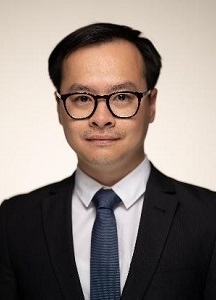
Binh Vu, SRH University Heidelberg, Germany
Binh Vu is currently a professor at the SRH University Heidelberg. Carrying the passion for applying machine learning innovations in health care, he spent several years on the development of education portals for European and German medical associations. Binh Vu joined the Research Institute for Telecommunications and Cooperation in 2014 and works on different EU-funded research projects. Binh Vu left FTK in 2022 to work as a full-time professor of data science at SRH. Binh Vu serves in the reviewer boards and program committees of different conferences and journals. He is also a university ambassador and instructor of Nvidia Deep Learning Institute. His research focuses on the development of machine learning, deep learning, and knowledge management system supporting game industry, medical research, and data science innovation.
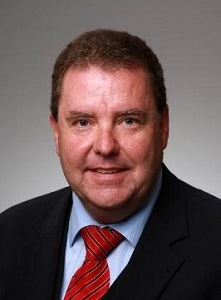
Matthias Hemmje, FernUniversität in Hagen, Germany
Matthias L. Hemmje is full professor at the University of Hagen. His ongoing R&D activities are related to Digital Libraries, Multimedia Archives, Information Retrieval, Filtering, Linking, Enrichment, Personalization, and Information Visualization. He also guides research in the area of content engineering, knowledge technologies, collaboration and e -learning support systems. Matthias Hemmje has 25 years of experience in IT R&D on national and international level, has been author and co-author in more than 100 publications, is consulting as Senior Expert Consultant for the German Ministry for Research and Education (BMBF), the European Commission (EC), the German Research Foundation (DFG), and several R&D spin-offs. Besides this, he is a member of the board of directors of FTK.
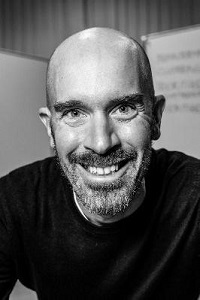
Benjamin Zierock, SRH University Heidelberg, Germany
Benjamin Zierock is Professor of Design and Innovation Development at the Faculty of Media, Information and Design at SRH University of Applied Sciences Heidelberg. As a graduate designer, he has been working in the field of "new media" for over 15 years. Benjamin Zierock has received numerous awards for his work, including the EIT Health Design Award 2018 from the UNDERCOVER Design Festival. In his research and transfer projects, he is particularly concerned with digital solutions in general and serious games in the health industry. At the Founders Institute of the SRH University of Applied Sciences Heidelberg, he supports people interested in founding a company, start-ups, and young entrepreneurs. He organizes various event series on the topic of entrepreneurship and creativity and has published various books and articles on topics such as creativity, design, and participation, too.
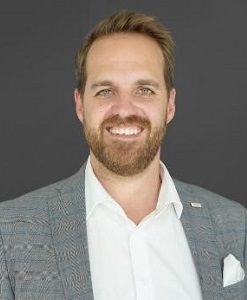
Marco Xaver Bornschlegl, FernUniversität in Hagen, Germany
Dr.-Ing. Marco Xaver Bornschlegl has several years’ experience in different IT management positions and in various national and international IT infrastructure projects within large international constructing, engineering, and services groups. Since 2022, he is CISO and leads the central division STRABAG Innovation and Digitalisation as an authorized representative with general power of attorney of the STRABAG AG. In this context, he is responsible for the definition of the information security and digitalization strategy of the STRABAG group. Marco Xaver Bornschlegl completed his bachelor and master studies with honors and for his master thesis he received an award from a leading German engineering association (IfKom e.V.). At the SEDE 2017 conference in San Diego, CA, his research paper has been distinguished with the best paper award. For his innovative approach, he was awarded 2018 and 2019 with the Confare IDEAward for digital pioneers and innovators who successfully face the challenges of digital transformation and thus strengthen the sustainability of the German and Austrian economy. He completed his dissertation with summa cum laude and his PHD thesis was awarded as an outstanding PHD thesis in the area of computer science (Bernd Pederzani Memorial Award). Furthermore, his dissertation was included in the anthology "Excellent Computer Science Dissertations 2019" of the German Society for Computer Science (GI), the Swiss Computer Science Society (SI), and the Austrian Computer Society (OCG).
Paul McKevitt, Ulster University, North Ireland
Prof. Paul Mc Kevitt has 40 years international experience in Computer Science (Artificial Intelligence [AI], Intelligent MultiMedia [MultiModal Systems], Medical Informatics) focused on teaching, research & technology transfer (with software demonstrators & patents) as an academic deployed at university & R&D institutions in Germany, Northern Ireland, France, Denmark, England, Ireland & the USA (New Mexico). He is a visiting professor of Artificial Intelligence (AI) at FTK - Forschungsinstitut für Telekommunikation und Kooperation, Germany and at the Academy for International Science & Research (AISR), and Professor Emeritus at the Faculty of Arts, Humanities & Social Sciences, Ulster University, Northern Ireland. Recently, he is participating within 7 international EU Horizon 2020 R&D projects, as Experienced Researcher (ER) on Secondments to Globit GmbH (Germany), Inmark Europe (Spain) & NSilico (Ireland) within 4 Marie Sklodowska-Curie Research & Innovation Staff Exchange (RISE) projects, MENHIR, StOP, SenseCare & MetaPlat, and as Instructor within 3 Erasmus+ projects, GREAT, RoboCode, & Improving STEM Education Across European Schools.
Haithem Alfi, Munster Technological University, Ireland
Dr. Haithem Afli is a leading expert in Natural Language Processing and Artificial Intelligence and a rising star in the area of applied Artificial Intelligence in Healthcare, Life-science, and Fintech. Dr Afli is lecturing AI within the Computer Science Department of Munster Technological University (MTU) in Ireland and leading the MTU Human Centred AI Research Group, HAI. Dr Haithem Afli is Science Foundation Ireland funded investigator at ADAPT Centre where he is responsible for leading one of the three challenge leads of the DCT strand and he is a member of the ADAPT Executive Management Committee, representing MTU. Haithem’s research interest is primarily focuses in the areas of Machine Translation, Sentiment Analysis, Natural Language Processing and Machine Learning. Dr Afli has published over 70 peer reviewed research articles and is serving as Editor, Program Chair, Program Committee Member and advisor in many international research conferences and journals. Dr Haithem Afli was a key contributor to the recently established MTU Masters programs on Computational Biology and Artificial Intelligence. As an academic researcher, Haithem is keen to commercialize his research with industry partnerships and is actively involved in managing academia-industry partnership projects including co-founding LinguAnalysis.ai
Theodoros Soldatos, SRH University Heidelberg, Germany
Theodoros Soldatos is currently a Professor at the SRH Hochschule (University of Applied Sciences) Heidelberg, responsible for Advanced Data Science and Analytics (ADSA) Master program modules, such as Data Analytics and Data management. Previously, he pursued postgraduate studies in life sciences after studying informatics. This combination has to to almost 20 years of interdisciplinary experience in both industry and academia on topics such as health informatics, personalized medicine, bioinformatics, drug safety, and real-world data and applications. He is also a patent holder, interested in ways to augment biomedical human- computer interactivity both for experts and for the general public
Maria Inés Torres, Universidad del País Vasco, Spain
Prof. M. Inés Torres received her PhD in Physics from the UPV/EHU in 1990, including an internship at the CNET-Lanion (France). She was a visiting researcher at the Polytechnic University of Valencia (Spain), visiting Faculty in Carnegie Mellon University and visiting Professor at the University of California granted by the Fulbright program. She is currently a Full Professor of Computer Science at the UPV/EHU. Prof. Torres has a multi-disciplinary academic and industrial experience in the fields of Speech and Language Technologies conducted by data driven approaches. Her current interests are Human-Machine Interaction, Speech Processing Affective Computing and Spoken Dialogue Systems. She has successfully coordinated the H2020 EMPATHIC project, leaded research contracts and national projects, among others.
Huiru Zheng, Ulster University, North Ireland
Prof. Huiru (Jane) Zheng is a Professor of Computer Science with School of Computing and Mathematics, a full member of Computer Science Research Institute and a Fellow of the UK Higher Education Academy. Prof. Zheng is an active researcher in bioinformatics and healthcare informatics. Within her broad interests in data mining, data integration, machine learning and healthcare decision support, Prof. Zheng has a particular research interest and expertise in integrative data analytics in the field of systems biology, and intelligent data analysis and assistive technology to support healthcare and independent living. She has a successful track record of winning research funding as a principal investigator. The products of her research have been reflected in her over 200 peer reviewed journal and conference publications. Prof. Zheng is an IEEE member. She serves on the editorial board of several international journals and serves as co-chairs and program committees of a number of international conferences.
Kamellia Reshadi, SRH University Heidelberg, Germany
Dr. Kamellia Reshadi received her PhD in Computer science from Kiel university in 2019. There, she specifically worked on areas of Combinatorics on words and text algorithms. Previously, she achieved her Master of science in Computer Science from University of Tehran (ranked first university in Iran) in the area Combinatorics on Words. She is now responsible for Advanced Data Science and Analytics (ADSA) and Applied Computer Science (ACS) groups. She is taking care of Data Analytics and Advanced Computer Science courses. She is the administer of Google Cloud Platform for ADSA group too. She was participant, presenter, and a part of organizer of several conferences, workshops, and summer schools. Between her studies, she was working for several years in Industry as Java and J2EE engineer specifically in Banking area, and Sea & Air Logistic as well. Her research interest is mainly, Text- Algorithms and Combinatorics on words, Pattern Matching, String Solving, Combinatorial and algorithmic problems on the sequential structure. Applied Data Science and Analytics, Data analytics and Machine Learning, Data Scientist with R, Cloud Computing and GCP, IoT projects.
Attendance in the workshops will be available as ‘in-person’ only. Workshops are ‘closed’ events, i.e. only authors of accepted workshop proposals, registered for the specific workshop, will be able to attend.
A registration fee of $75 is applicable for workshop participants. Workshop participants who wish to attend the Conference will need to also register for the Conference.
The total number of participants per workshop cannot be less than 8 or exceed 25.